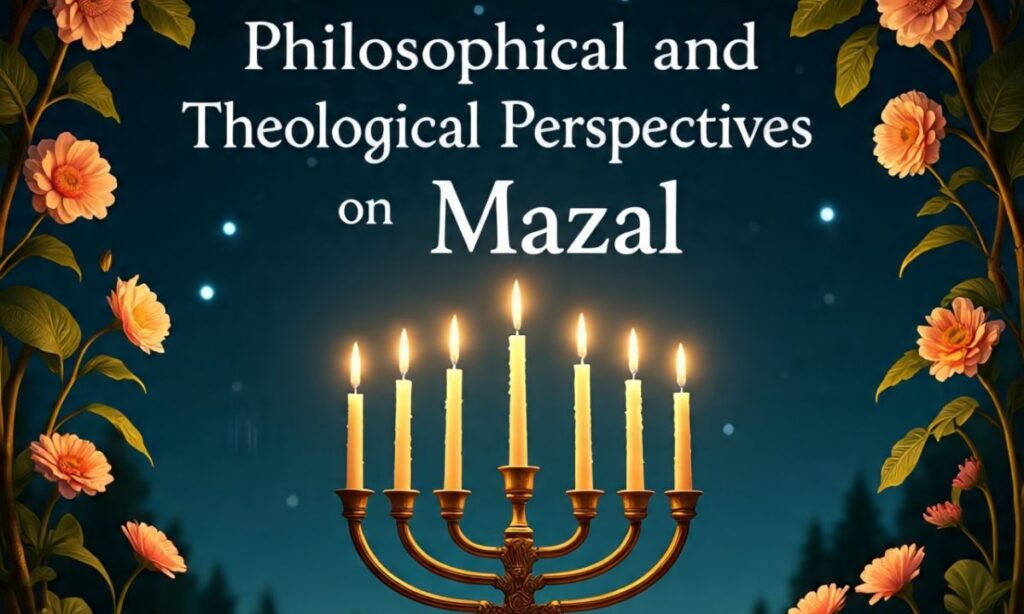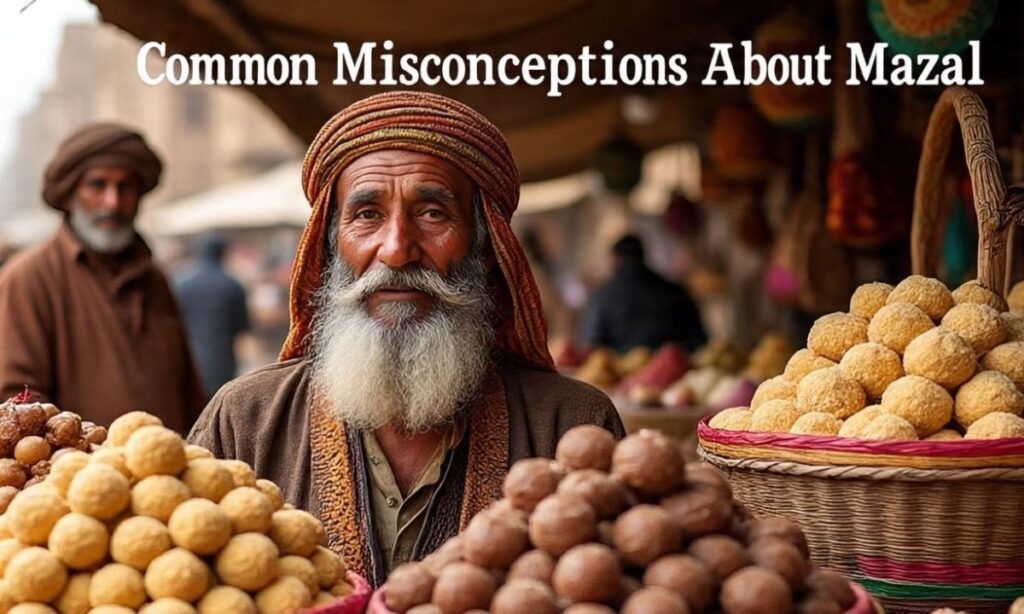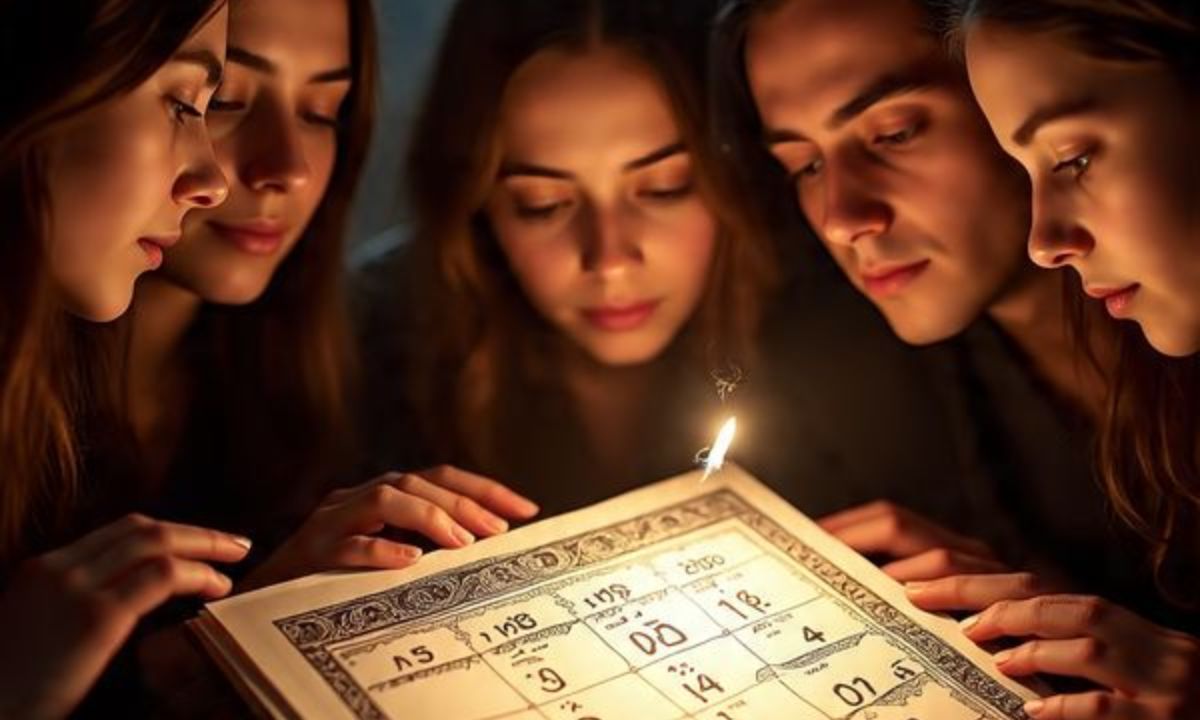The word Mazal has a rich history and deep meaning. Many people know it from the phrase “Mazal Tov,” which means good luck or congratulations. In 2025, the term is still important in culture, faith, and daily life. It connects language, tradition, and human experience.
Understanding the meaning of Mazal helps us see how words shape beliefs. Its origins come from ancient times, linked to stars, destiny, and blessings. Over the years, it has gained new interpretations across cultures. Today, Mazal reminds us of luck, fate, and the hope for a better future.
Etymology and Linguistic Origins of Mazal
The word mazal derives from ancient Hebrew and Aramaic roots. Its primary meaning connects to the concept of flowing or dripping. This imagery suggests something that flows down from above, like divine blessing or celestial influence.
Historical Linguistic Roots
The Hebrew root נ-ז-ל (n-z-l) forms the foundation of mazal. This root appears in various Semitic languages with related meanings. Ancient texts show consistent usage across different historical periods.
Key linguistic developments include:
- Proto-Semitic origins: The root existed in the earliest Semitic languages
- Hebrew evolution: The term developed specific religious and cultural meanings
- Aramaic influence: Talmudic usage expanded the concept significantly
- Medieval interpretations: Jewish scholars refined the theological implications
- Modern applications: Contemporary Hebrew maintains both traditional and secular uses
The linguistic journey of mazal reflects changing cultural perspectives. Ancient usage emphasized divine agency and celestial influence. Modern applications often focus on luck and fortune in everyday contexts.
Archaeological evidence supports the term’s ancient usage. Inscriptions and manuscripts demonstrate consistent meaning across millennia. This linguistic stability suggests the concept’s fundamental importance to human understanding.
Mazal in Jewish Thought and Tradition
Jewish tradition treats mazal as a complex theological concept. It represents the intersection between divine will and human experience. Rabbinic literature explores this relationship extensively.
The Talmudic understanding emphasizes mazal’s role in individual destiny. Different people possess different mazal, affecting their life experiences. This concept balances divine sovereignty with personal responsibility.
Biblical and Talmudic References
Biblical texts contain implicit references to mazal concepts. While the specific term appears infrequently, related ideas permeate scripture. The book of Ecclesiastes discusses appointed times and seasons, reflecting mazal thinking.
Talmudic literature provides extensive mazal discussions. Key passages include:
- Tractate Shabbat: Discusses mazal’s influence on children, wealth, and longevity
- Tractate Moed Katan: Explores mazal’s relationship to life events
- Tractate Berakhot: Examines prayer’s ability to influence mazal
- Tractate Ta’anit: Considers fasting’s impact on mazal
The Babylonian Talmud states “Ein mazal l’Yisrael” (Israel has no mazal). This paradoxical statement generates extensive commentary. Some interpret it as meaning Israel transcends ordinary mazal through divine providence.
Rabbinic Perspectives on Mazal
Medieval Jewish scholars developed sophisticated mazal theologies. Maimonides emphasized rational approaches while acknowledging divine providence. Other authorities focused on mystical interpretations.
| Scholar | Period | Perspective on Mazal |
| Maimonides | 12th century | Rational, limited astrological influence |
| Nachmanides | 13th century | Mystical, significant spiritual power |
| Rashi | 11th century | Traditional, balanced approach |
| Tosafists | 12th-14th centuries | Analytical, legal implications |
| Kabbalalists | 13th century onward | Esoteric, cosmic significance |
These diverse perspectives created rich interpretive traditions. Contemporary Jewish thought continues engaging with these classical sources. Modern rabbis balance traditional wisdom with contemporary understanding.
The Role of Mazal in Astrology and Mysticism

Astrological traditions incorporate mazal as celestial influence. Ancient astrologers believed planetary positions affected human mazal. This connection persists in various mystical systems.
Jewish mysticism, particularly Kabbalah, develops elaborate mazal cosmologies. The Zohar describes complex relationships between celestial spheres and human destiny. These teachings influenced Jewish spiritual practice for centuries.
The 12 Mazalot (Zodiac Signs) in Jewish Tradition
Jewish tradition recognizes twelve mazalot corresponding to zodiac signs. Each mazal possesses distinct characteristics and influences. Traditional texts provide detailed descriptions of their properties.
The twelve mazalot include:
- Taleh (Aries): Leadership, initiative, new beginnings
- Shor (Taurus): Stability, material success, persistence
- Teomim (Gemini): Communication, versatility, intellectual pursuits
- Sartan (Cancer): Nurturing, emotional depth, family connections
- Aryeh (Leo): Creativity, nobility, self-expression
- Betulah (Virgo): Analysis, service, attention to detail
- Moznayim (Libra): Balance, relationships, aesthetic appreciation
- Akrav (Scorpio): Transformation, intensity, hidden depths
- Keshet (Sagittarius): Expansion, philosophy, spiritual seeking
- Gedi (Capricorn): Achievement, responsibility, practical wisdom
- Delhi (Aquarius): Innovation, humanitarian concerns, group consciousness
- Dagim (Pisces): Intuition, compassion, spiritual sensitivity
Each mazal influences personality traits and life tendencies. Traditional Jewish astrology connects birth times to specific mazal influences. This system provides a framework for understanding individual characteristics.
Mazal in Modern Hebrew and Everyday Life
Contemporary Hebrew usage transforms mazal into everyday language. Modern Israelis use mazal expressions regularly without necessarily considering theological implications. This secularization reflects broader cultural changes.
Common modern applications include casual conversation, business contexts, and social interactions. The term maintains positive connotations while losing some traditional depth. Young Israelis particularly embrace casual mazal usage.
Common Expressions Using Mazal
Hebrew speakers use numerous mazal expressions daily. These phrases reflect cultural values and social customs. Understanding these expressions provides insight into Israeli society.
Popular mazal expressions:
- Mazal tov: Congratulations, good fortune
- Yesh li mazal: I have luck/good fortune
- Ein li mazal: I have no luck/bad fortune
- Mazal ra: Bad luck, misfortune
- Mazal gadol: Great luck, exceptional fortune
- Mazal chadash: New luck, fresh start
- Mazal Yehudi: Jewish luck (often ironic)
- Lo mazal, lo mazal: No luck at all
These expressions demonstrate mazal’s integration into daily discourse. Speakers use them naturally without theological consideration. The phrases convey immediate emotional content and social connection.
Philosophical and Theological Perspectives on Mazal

Religious philosophers debate Mazal’s precise nature and implications. Questions arise about divine determinism versus human agency. These discussions continue shaping theological understanding.
Contemporary Jewish philosophers approach mazal through various lenses. Some emphasize psychological interpretations while others maintain traditional theological frameworks. This diversity enriches ongoing discussions.
Free Will vs. Destiny
The relationship between mazal and free will generates significant philosophical debate. Traditional sources suggest both concepts operate simultaneously. This creates theological tensions requiring careful resolution.
Different philosophical positions include:
- Hard determinism: Mazal completely determines outcomes
- Compatibilism: Free will operates within mazal constraints
- Libertarianism: Human choice can override mazal influence
- Divine providence: God orchestrates both mazal and free will
- Mystical synthesis: Higher spiritual levels transcend ordinary mazal
These perspectives offer different practical implications. Hard determinists might emphasize acceptance while libertarians stress personal responsibility. Most traditional authorities advocate balanced approaches.
How Mazal Influences Jewish Rituals and Customs?
Jewish ritual life incorporates mazal considerations in various ways. Timing of ceremonies often reflects astrological awareness. Traditional authorities provide guidance for maximizing positive mazal influence.
Ritual applications include wedding timing, business ventures, and travel decisions. Some communities maintain elaborate customs around mazal optimization. These practices blend religious observance with practical considerations.
Mazal in Life Events
Life cycle events particularly emphasize mazal significance. Birth, coming of age, marriage, and death all involve mazal considerations. Traditional customs reflect these concerns through specific practices.
| Life Event | Mazal Consideration | Traditional Practice |
| Birth | Auspicious timing | Naming ceremonies, brit milah timing |
| Bar/Bat Mitzvah | Favorable dates | Hebrew calendar calculations |
| Marriage | Compatible mazalot | Engagement timing, wedding dates |
| Business | Prosperity influence | Partnership timing, venture launches |
| Travel | Safe passage | Departure day selection |
| Moving | Household harmony | Relocation timing |
These practices demonstrate mazal’s practical application in Jewish life. Contemporary observance varies widely between communities. Some maintain strict traditional guidelines while others adopt more flexible approaches.
Common Misconceptions About Mazal

Popular understanding often distorts mazal’s authentic meaning. Common misconceptions include oversimplification and cultural appropriation. Correcting these errors requires careful education and explanation.
Frequent misunderstandings involve:
- Mazal equals luck: Reduces complex concept to simple fortune
- Fixed destiny: Ignores human agency and spiritual growth
- Superstitious practice: Dismisses legitimate spiritual concerns
- Universal application: Overlooks cultural specificity
- Material focus: Neglects spiritual and ethical dimensions
These misconceptions arise from incomplete information and cultural translation difficulties. Proper education requires comprehensive explanation of traditional sources and contemporary applications.
The Influence of Mazal in Other Cultures
While primarily associated with Jewish tradition, mazal concepts appear in various cultures. Similar ideas about destiny and celestial influence exist worldwide. Comparative study reveals universal human concerns.
Related concepts include:
- Arabic: Similar Semitic roots with comparable meanings
- Christian: Divine providence discussions parallel mazal theology
- Islamic: Qadar concepts share theological territory
- Hindu: Karma and destiny teachings offer parallels
- Western astrology: Zodiacal influences mirror mazal systems
These cross-cultural similarities suggest a fundamental human need for understanding destiny and divine influence. Each tradition develops unique interpretations while addressing common concerns.
Practical Applications: What Mazal Means for You
Understanding mazal provides practical benefits for daily living. The concept offers framework for interpreting life experiences and making decisions. Modern applications adapt traditional wisdom to contemporary circumstances.
Practical benefits include:
- Decision-making: Timing considerations for major choices
- Emotional resilience: Framework for understanding setbacks
- Spiritual growth: Connection to transcendent purposes
- Community belonging: Shared cultural understanding
- Personal development: Integration of destiny and agency
Can Mazal Be Changed?
Traditional sources debate whether mazal can be modified through human action. Various practices supposedly influence mazal including prayer, charity, and ethical behavior. These approaches offer hope while acknowledging divine sovereignty.
Methods for mazal improvement:
- Prayer and meditation: Spiritual practices for divine intervention
- Charitable giving: Merit accumulation through generosity
- Ethical behavior: Righteous living affecting destiny
- Torah study: Wisdom acquisition transcending ordinary mazal
- Ritual observance: Traditional practices maintaining divine connection
Daily Practices Involving Mazal
Contemporary practitioners incorporate mazal awareness into daily routines. These practices range from simple expressions to elaborate spiritual disciplines. Individual choice determines specific applications.
Daily mazal practices:
- Morning gratitude: Acknowledging divine providence
- Decision timing: Consulting favorable periods
- Blessing recitation: Recognizing divine influence
- Ethical reflection: Connecting actions to consequences
- Community participation: Sharing collective mazal
Frequently Asked Questions
What is the meaning-of-mazal in simple words?
The meaning-of-mazal is luck, fortune, or destiny in life.
Where does the meaning-of-mazal come from?
The meaning-of-mazal comes from Hebrew, linked to stars and destiny.
Why is the meaning-of-mazal important in culture?
The meaning-of-mazal is important because it reflects blessings, fate, and life’s direction.
How is the meaning-of-mazal used today?
Today, the meaning-of-mazal is often used in phrases like “Mazal Tov,” meaning congratulations.
Does the meaning-of-mazal change over time?
Yes, the meaning-of-mazal has expanded from ancient destiny to modern ideas of luck and success.
Conclusion
The meaning of Mazal goes beyond simple luck; it carries history, culture, and faith within it. From its roots in ancient traditions to its use in everyday blessings, Mazal reflects how people view destiny and hope. In 2025, it continues to inspire with its timeless depth and relevance.
For modern readers, Mazal is not just a word but a connection to heritage and belief. It reminds us that life is shaped by both chance and divine order. As cultures grow and change, the meaning of Mazal remains a symbol of good fortune, hope, and celebration.

Hi, I’m Michael Grant. I have 4 years of experience writing for BibleTruthsNow.com, sharing insights on prayer, Bible meaning, and faith to encourage believers in their spiritual journey.


